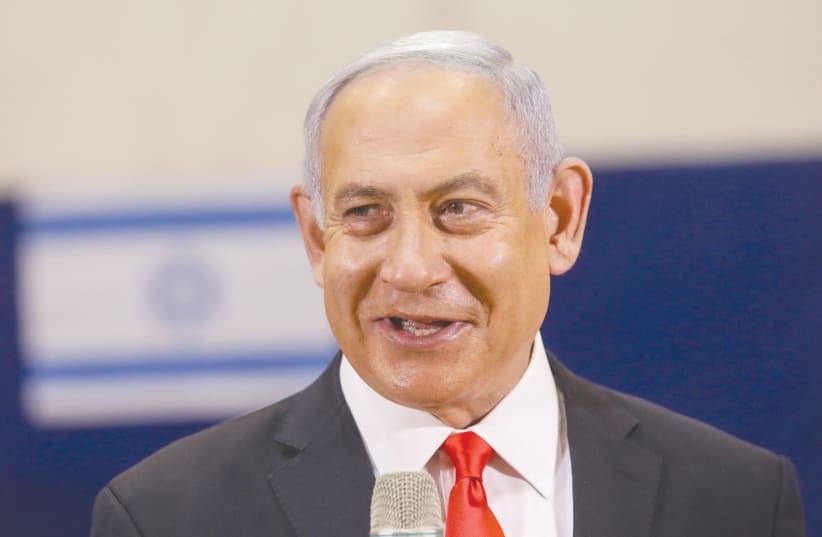A majority of the MKs who will be sworn in to the Knesset on Tuesday would vote for Prime Minister Benjamin Netanyahu to be Israel’s next president, a senior Likud source close to Netanyahu told The Jerusalem Post on Sunday.
By law, the election for president must be held between April 9 and June 9, before President Reuven Rivlin’s seven-year term expires on July 9. The politician closest to Netanyahu, Knesset Speaker Yariv Levin, will set the date for the vote in the Knesset, which must be held at least three weeks after the date is announced.
“I know for a fact that most of the MKs would vote for him if he decides he wants to be president,” the senior Likud source said. “It’s all in Netanyahu’s hands.”
The source revealed that there is also a majority in the new Knesset to change the law and switch the vote from a secret ballot to an open one, which could significantly increase the chances of Netanyahu’s election.
It would also help Netanyahu’s election chances because leaving the Prime Minister’s Residence on Balfour Street for the President’s Residence three blocks away could help end the two-and-a-half-year political stalemate.
If Netanyahu is no longer leader of the Likud, the party would hold a snap primary among its members, and whoever wins could easily form a stable, center-right coalition comprised of the 73 MKs of Likud, Shas, Blue and White, United Torah Judaism, Yamina, New Hope and the Religious Zionist Party.
New Hope leader Gideon Sa’ar has vowed to never sit under Netanyahu. But last week he said he would join a government led by a new Likud leader, singling out Finance Minister Israel Katz, Health Minister Yuli Edelstein and MK Nir Barkat, who would all be candidates for Likud leader in the post-Netanyahu era.
One complication that could prevent Netanyahu from running is that it is legally unclear whether the law preventing a president from being prosecuted would apply to a new president who is already under indictment and on trial for bribery, fraud and breach of trust.
A spokesman for Netanyahu said he could not confirm a Channel 12 report that the prime minister had checked the law with legal experts or a separate report by the same channel that he was no longer ruling out a run for president as he did before.
Hebrew news site Walla News, which is part of the Jerusalem Post Group, was the first to report that Netanyahu is considering seeking the presidency.
Another technical possibility is that Levin could refuse to initiate the race for president. When Rivlin’s term ends, it would be up to Attorney-General Avichai Mandelblit to determine whether Levin would then become acting president.
When Knesset speaker Dalia Itzik served as acting president after then-president Moshe Katsav suspended himself to deal with rape charges, Itzik pardoned hundreds of people, including former MK Nomi Blumenthal.
Blumenthal had been convicted of election bribery and obstruction of justice for paying for hotel rooms for Likud Central Committee members before elections for the party’s Knesset slate and then trying to cover it up.
Levin could pardon Netanyahu if a plea agreement takes place before then in which the Likud leader is convicted on criminal charges.
If Netanyahu is elected president, he would join Shimon Peres as the only two leaders to have served as both prime minister and president.
Other candidates are expected to include former Labor Party ministers Isaac Herzog, Amir Peretz and Shimon Sheetrit, Likud MK Yehudah Glick and perhaps Israel Prize-winning educator Miriam Peretz and singer Yehoram Gaon.
